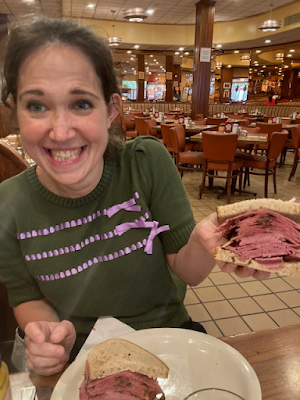How shall we answer the princess’s question? A thousand butterflies launch in our chest as we hear it, taking flight at her curiosity, gently lifting. But soon, the fluttering spreads too far, pushing against the confines of our flesh. The pressure of a thousand wings, slightly off-kilter from one another, frantically beating, verging on hysterical. It is difficult to breathe.
We tug at the tight ring of lace about our neck, sitting straighter as if the building tension might exhaust itself through an expansion of vertebrae.
“Mother, did you hear? Why is the sky purple?”
“We heard, darling.”
It would be simple to answer, “It is as the Father decreed.”
We try, once, but the words stick in our throat.
We rise, now, expending energy in walking. Moving away from the popular parts of the Garden where all might hear toward the wooded shadows near the curving wall, where the plants grow wilder.
She follows, with some servants at a distance.
We turn to them. “Go to prepare supper in our chambers.”
All leave except for Sadie, who has been with us since the beginning. Without whom we would never have survived the Melt. Without whom we simply would not survive. We exchange a glance with her, and she shakes her head slightly, warning us, even as the warmth of her gaze fills our heart. We breathe deeply, restraining ourself.
We pause by the lone rosebush, blooming dainty and pink. While the princess inhales each individual blossom, we examine the thorns.
She knows the story, could tell it as well as we could. Better, even, since she has grown up knowing nothing else.
In the Beginning, the Father created Sky and Garden. And the Garden was dark and dank. Nothing grew there until the Father declared, “Let there be light.” And the Father saw that the light was good. And the Garden began to produce, and the vegetables to multiply. And the Father saw that the Garden was good. And the Father made the Sky purple to signify His promise to his people: that they would never encounter the Melt again, because he would protect them.
Because before the Beginning was the Melt, when the heathens who walked outside scorned the fruits of the Earth, and the Earth so burned with anger that it melted all the ice in the world, flooding the ground and drowning the blasphemous.
But whosoever believed in Father was saved, because Father was the creator of the Garden, where Earth’s final children might live safely indoors, free to eat and drink and multiply under the generator-produced light. And Father took three Queens to represent the three tenets of the Garden: the Queen of Obedience, the Queen of Order, and the Queen of Growth.
So it was written. By Father, of course. So it was told: obeyed, repeated, and planted in the minds of the children.
The butterflies now rage inside us, as if the remembrance of a past where they were solid and real is enough to work their spectral form into a frenzy.
We glance up at the purple of the grow lights lining the ceiling, and then look again at Sadie, our love. She knows how we will answer the princess’s question, and we know she is terribly afraid, but she makes no motion to stop us. We pour our feelings into the barest smile, the most the Queen of Obedience can dare to show.
Kneeling, I make sure the princess sees my eyes and the weight of the implications they hold as I finally answer her.
“That, my darling, is not the sky.”
Jenna Hanchey
has been called a “badass fairy” and she attempts to live up to the
title. A professor of critical/cultural studies at Arizona State
University, her research looks at how speculative fiction can imagine
decolonization and bring it into being. Her own writing tries to support
this project of creating better futures for us all. Her stories have
appeared in Nature, Daily Science Fiction, Little Blue Marble, and of course, Stupefying Stories, among other venues. You can follow her adventures on Twitter @jennahanchey or at www.jennahanchey.com.
“Answers Beyond Garden and Sky” was first published in Tree & Stone Magazine, June 2022.






































.jpg)





